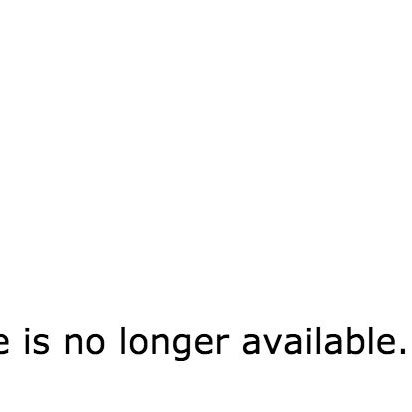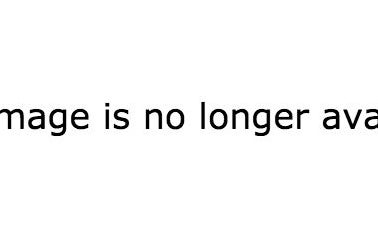SO. Lily Allen released a new video this week.
View this video on YouTube
It was her first solo song and music video since 2009's "Who Would've Known," so it caught a lot of people by surprise.
Allen's always been known as someone who speaks her mind, calling out sexism and double standards...
...and unhealthy societal expectations in her music in a sarcastic, satirical way.
So, it makes sense that her new "Hard Out Here" video would be about the ridiculous expectations of women in today's entertainment industry.
The video pokes fun at Robin Thicke's "Blurred Lines" video...


... As well as Miley Cyrus' "We Can't Stop" video and performances.


But it also became about something bigger, regardless of whether it was Allen's intention or not.

In trying to make a comment about the sexism and materialism in hip-hop videos and pop music, Allen's video was interpreted by many as perpetuating the very real racism that's still around us every day.


Some people didn't see it that way.


But many did.


Some people were confused.


Even Lena Dunham got in on the discussion, asking her followers for their thoughts regarding the video.

In an interview with NME, the video's director, Christopher Sweeney, said the concept was intended to be more of a critique of music video tropes than anything else.
"I wanted to encapsulate the that idea of music industry sexism and poke fun at it," he told NME. "That culture is something we're all complicit in — we all sit and watch those videos with twerking and champagne spilling over gyrating naked women and all that on MTV all the time, so to really rally against them would be hypocritical."
The problem, however, was that for satire to have a real effect, mere imitation is not enough.


It's not enough to just point out something happening in culture (and in a culture you don't belong to), and one that is being appropriated by people like Miley Cyrus.
problem with Lily Allen video is going "UGH. VIDEOS HAVE SO MUCH TWERKING NOW. LIKE THIS TWERKING, HERE."

DVS
@DVSblast
problem with Lily Allen video is going "UGH. VIDEOS HAVE SO MUCH TWERKING NOW. LIKE THIS TWERKING, HERE."
"NO ITS SATIRE". Lets hold hands & walk for a moment, shall we? Why do videos have butts? Because people like those? Correct.

DVS
@DVSblast
"NO ITS SATIRE". Lets hold hands & walk for a moment, shall we? Why do videos have butts? Because people like those? Correct.
so a lightbulb goes off "IF PEOPLE LIKE BUTTS...AND VIDEO ~HAS~ BUTTS...PEOPLE.....LIKE...VIDEO!" which is what it is

DVS
@DVSblast
so a lightbulb goes off "IF PEOPLE LIKE BUTTS...AND VIDEO ~HAS~ BUTTS...PEOPLE.....LIKE...VIDEO!" which is what it is
Because without any value added, it ends up being just as bad (or as uncomfortably close to) the very offenders you're trying to "poke fun" at.
but no matter your "high concept" reasoning, asses are putting asses in the seats, nahmean?

DVS
@DVSblast
but no matter your "high concept" reasoning, asses are putting asses in the seats, nahmean?
In a Twitlonger post, Lily Allen responded to some of the criticisms of racism in the video:
Titled "Privilege, Superiority and Misconceptions," Allen wrote, "If anyone thinks for a second that I requested specific ethnicities for the video, they're wrong."
The message is clear. Whilst I don't want to offend anyone. I do strive to provoke thought and conversation. The video is meant to be a lighthearted satirical video that deals with objectification of women within modern pop culture. It has nothing to do with race, at all ...
If I could dance like the ladies can, it would have been my arse on your screens; I actually rehearsed for two weeks trying to perfect my twerk, but failed miserably. If I was a little braver, I would have been wearing a bikini too, but I do not and I have chronic cellulite, which nobody wants to see. What I'm trying to say is that me being covered up has nothing to do with me wanting to disassociate myself from the girls, it has more to do with my own insecurities and I just wanted to feel as comfortable as possible on the shoot day.
Allen has a right to not feel comfortable baring it all in a video, but it's problematic when she decides to then feature dancers who are — and then has lyrics about them, like, "Don’t need to shake my ass for you / ‘Cuz I got a brain."

In large part, "Hard Out Here" itself mostly sounds like a feminist rally, but the video doesn't match up, as The Atlantic's Ashley Fetters points out:
The rest of them don't seem to hate being in these constricting costumes or doing these generally unnatural things except for her—and as a result, if you listened to this on mute, you might think this is less like a parody of the way we look at women in music videos and more like Allen poking fun at herself for not being able to live up to this standard the rest of the women apparently do.
While Allen was maybe referencing Cyrus' use of black dancers twerking all around her, Allen doesn't so much critique Cyrus as she does make the problem worse, in a different way, by making it about the black women themselves.
In a piece for Noisey, Ayesha A. Siddiqi writes:
Instead of using black women as props to further her career, Allen blames them for its stagnation. In full-sleeved dresses Allen mocks her inability to twerk amidst women of color in body suits who launch into exaggerated dance moves, licking their hands and then rubbing their crotch. Her older white male manager tries to get to her to mimic them. Meanwhile she sings, "Don't need to shake my ass for you/'Cause I've got a brain." Cut to black women shaking their ass, so much for sisterly solidarity.
Over at The Hairpin, Julianne Escobedo Shepherd concurs:
And when you're the fully-clothed white woman at the center, and your video director is still working with the same slow-mo ass shots as the ones you seem to want to satire (his direct inspiration: "what was the most hip-hop thing you could ever do?")—well, that shit is definitely racially problematic, and particularly so in a banner year for twerking and white women treating black women as props. ... She is using racism to skewer sexism, and it is unfortunately a familiar tack.
The video may have played out differently if Allen and Sweeney had added something new to the problematic scene rather than just recreating it.

In the video, Allen towers above her fellow women, wearing a fur pimp coat (the song's title takes after Three 6 Mafia's "Hard Out Here for a Pimp"), while the dancers are crouching, twerking like nameless, interchangeable faces (or rather, asses) around her.
Fetters writes:
At the end of the video, there's a shot of Allen falling out of her sexy pose and looking exasperated; if that were a shot of all the women falling out of their sexy poses, blowing their cheeks out like Allen does, taking out their heavy, uncomfortable earrings, or taking their heels off or something, then I feel like we'd get a better picture of the idea that these are three-dimensional women getting forced into this unfair, one-dimensional expectation for what women should be. But as it stands, Allen is the only three-dimensional woman in this video.
Like Fetters says, if there had been just five seconds of the twerking scene Allen sets up (versus four minutes), and then the dancers got up and side-eyed Lily Allen and walked away, it would be a different story, and a lot more of a knock at artists like Cyrus fetishizing and appropriating a dance trend popular in black and hip-hop culture. Same goes for if Allen had been in on the action herself from the get-go, dancing alongside the women in the same clothing, and eventually all rallying against the male villain-manager character.
As it stands, the central question in the video is muddled: Who exactly is it hard for? Is it hard for all women in the music business? Just the dancing women? Or is it hard just for the women like Allen, who don't wish to "shake their ass"? To equate "shaking it" with "not having a brain" is to assume a whole lot about people Allen may not understand. Rihanna, for example, is a great example of someone who owns her sexuality in a way that's independent of the male gaze, and it's powerful. (This great roundtable discussion about Rihanna over at The Hairpin is worth checking out.)
It's worth noting that this isn't the first time Allen's been called racist.


This summer, Allen engaged in a heated Twitter exchange with Azealia Banks; it's not clear who started it, but it was mostly standard Twitter beef. But things escalated after Banks called the singer's husband ugly, comparing his penis to a thumb. In retaliation, Allen then tweeted a NSFW photo, allegedly of her husband's penis, painted and dressed in blackface, wearing a chain, afro, and even googly eyes, to resemble the rapper. Regardless of whether that's actually her husband's dick or not, it's pretty hard to call that anything but extremely ignorant and insensitive, if not blatantly racist. And it's the same type of ignorance that gets Allen into trouble in the "Hard Out Here" video.
There is truth to much of what Allen is saying in "Hard Out Here," though; the lines about being ridiculed for her looks are very real problems that she and others have continually dealt with in the industry.
The sexism and double standards she mentions are, sadly real, too: "If I told you 'bout my sex life, you'd call me a slut / When boys be talkin' 'bout their bitches, no one's making a fuss."
But more than anything, she nails it on the head when she sings, "Inequality promises that it's here to stay / Always trust the injustice ‘cause it’s not going away."



